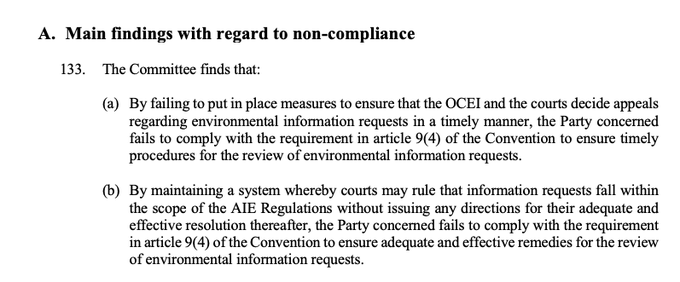When TheStory.ie came into this world nearly ten years ago now, it began as an experimental blog run by journalists on a volunteer basis.
It was an attempt to bring together investigative journalism, the right to freedom of information (FOI), and transparency advocacy, to see what would come out.
Through the use of systematic FOI requests, legal appeals, data journalism, and the online archiving of every government document released to us, what came out wasn’t half-bad.
In 2013 we vigorously campaigned against the introduction of upfront fees for FOI requests, sounding the alarm when we saw that there was an attempt to introduce them via a Committee Stage amendment to the drafting of the 2014 FOI bill.
In 2014 the infamous “Trichet Letters” were released, detailing the immense pressure brought to bear on the Irish state by the European Central Bank (ECB) in 2010, following a three-year appeals process which we initiated via the EU ombudsman.
We were also the first to publish the letter which Ireland sent formally seeking a bailout.
In 2015 NAMA were defeated in the Supreme Court on an issue directly related to its transparency and accountability, based on a request we sent in February 2010, and on a lengthy submission made by us (with the enormous work of lawyer Fred Logue advising pro bono).
In 2016 then, we finally took the plunge and started Right to Know (RTK), the non-profit NGO focused on transparency and access-to-information advocacy which now publishes TheStory.ie.
In summer of this year, we won a case against An Taoiseach in relation to accessing records of Cabinet discussions, which you can read about below.
This was all informed by the strong belief that the right to the
freedom of expression depends critically on the right to be informed: the right to information.
Since these are clearly times when an independent free-press has never been more vital, we’re taking things one step further, developing into a fully-fledged, if lean,
non-profit investigative journalism newsroom.
We’ve expanded our team, and in addition to continuing to push for greater transparency and accountability, we’ve got some very exciting projects in the works:
- We’ll be publishing this monthly newsletter, giving a roundup of what we’re working on and what other journalists in Ireland have been publishing using access to information legislation.
- We’re launching a podcast, where we’ll be discussing the state of public information journalism, and talking to some of the best hands around about how they go about their work.
- We’re initiating several special projects, where we’ll be routinely collecting and publicly uploading Ministerial Diaries, Local Authority annual financial returns and asset registries, departmental reports, declared donations, and more…
- We’ve already begun targeted in-depth investigations based on Freedom of Information requests
- We’re offering FOI Training sessions and seminars
That’s where we need your help.
We are dedicated to building a sustainable independent public-interest news organisation that can push for greater accountability and transparency, without paywalls or advertising.
That means we need the support of people who think that it’s worthwhile having such an organisation around. We recognise that our appeal is slightly narrow in its focus, but part of our ultimate goal is to build a community of people who share our belief that being informed is a key part of civic and public life, and this kind of work requires public support to operate. We’re also committed to total transparency in releasing our own accounts, and showing our supporters where their donations go, and how they are directly contributing to independent public-interest journalism.
Please consider becoming a donor if you think you can, but if not, stay tuned anyway because it’s all kicking off from here.
Support our mission and become a donor:
You can subscribe for €25, €50, €100 or €500 per year.
Subscribe here:
All payments are encrypted and processed by Stripe.
Stay Tuned:
You can also keep up to date with our work by following our campaigning work here on the blog as well as Twitter and Facebook.
To see the stories that come FOI-sourced investigative work, go to TheStory.ie and follow TheStory.ie’s Twitter.


